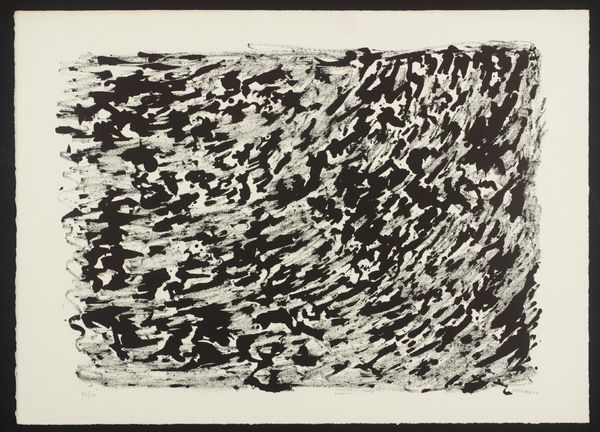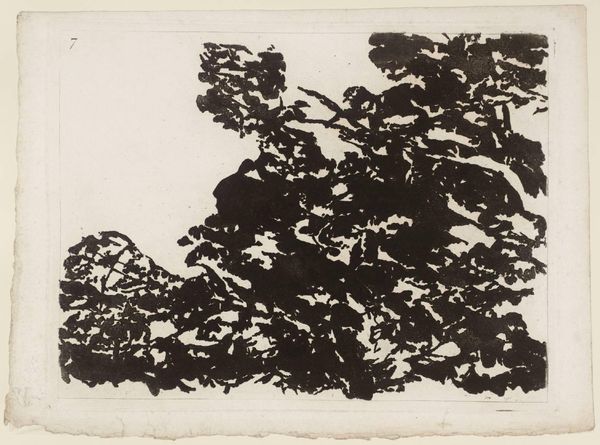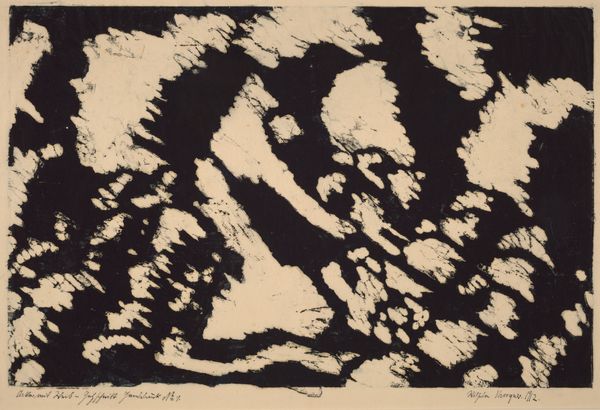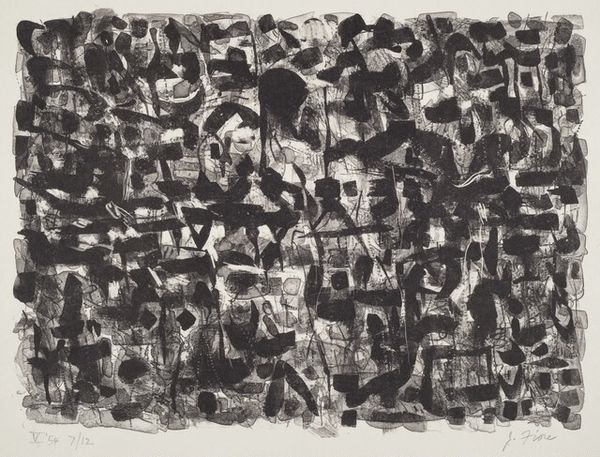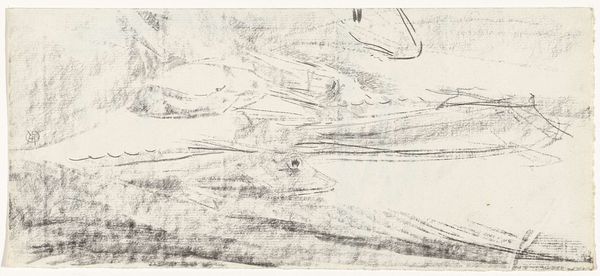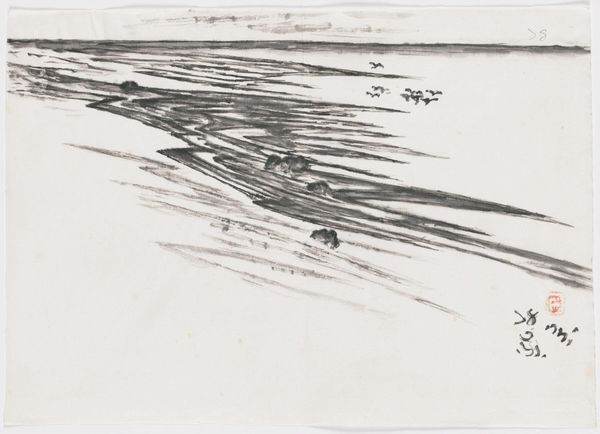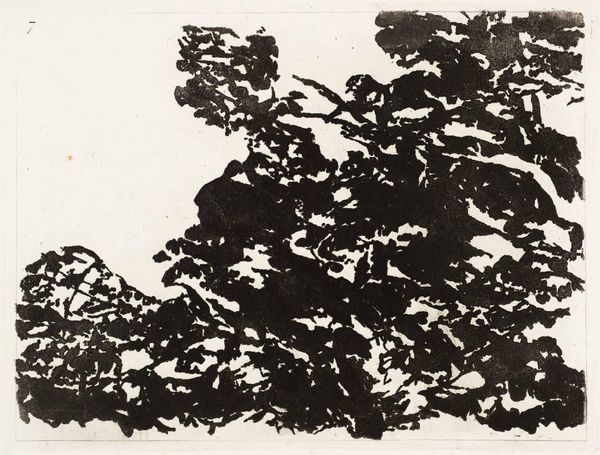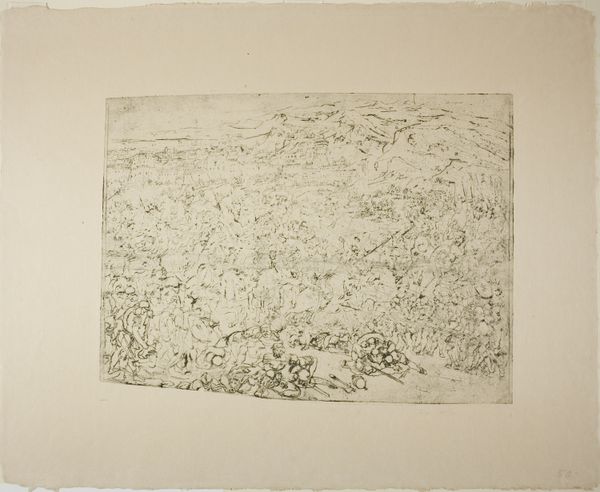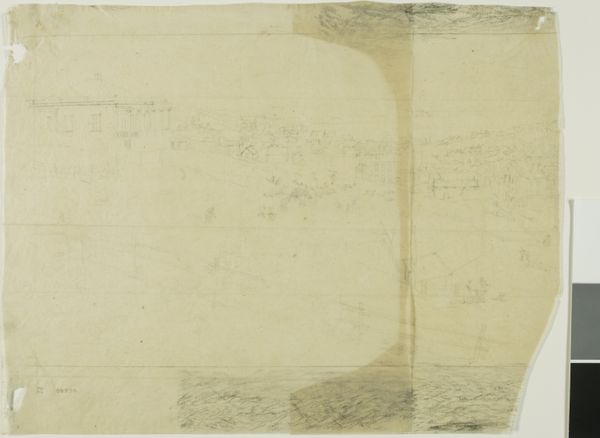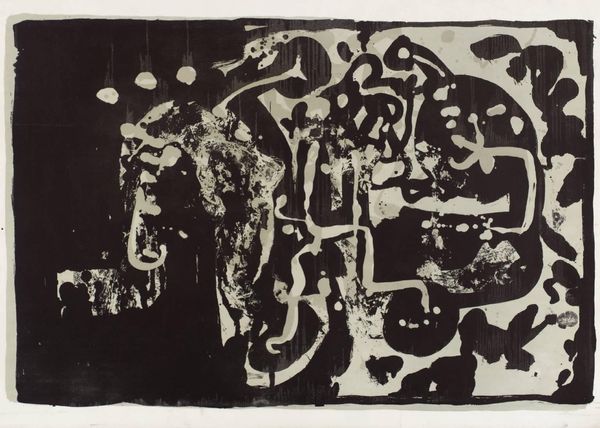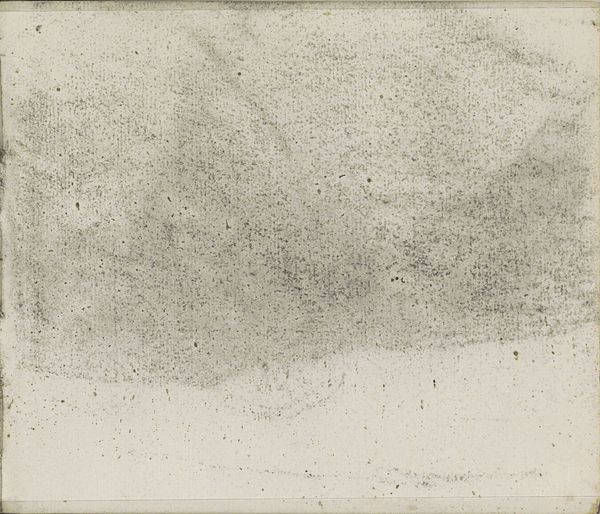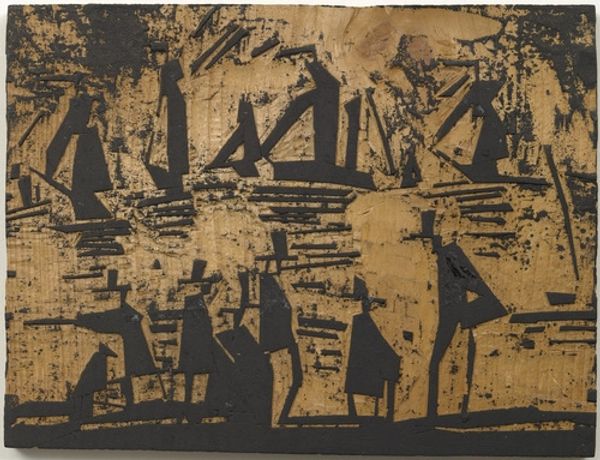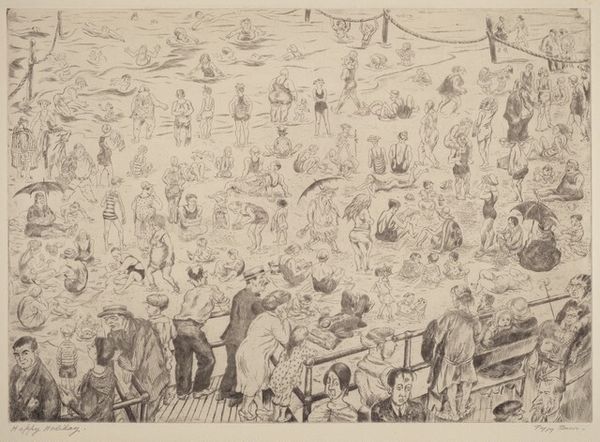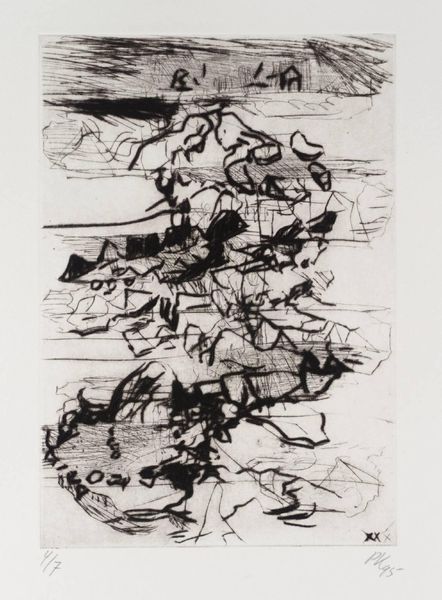
Dimensions: support: 746 x 1099 mm frame: 780 x 1130 x 39 mm
Copyright: © ADAGP, Paris and DACS, London 2014 | CC-BY-NC-ND 4.0 DEED, Photo: Tate
What do you see in this drawing? Do you see words, animals, a natural landscape? Maybe all of the above? In 1961, the Franco-Belgian artist and poet Henri Michaux (1899-1984) created this untitled drawing using Chinese ink on paper. At first glance, you might think it resembles handwriting or calligraphy. ️ Michaux often blended word and drawing, basing his artworks on the appearance of written letters and scrawled manuscripts. He stated that he wished to discover a new visual language which would bridge barriers of verbal communication. This drawing has a dense pattern, almost like a mountainous landscape – the dark blots of black ink come to mimic trees and rocks. 🪨 Under the supervision of the World Congress of Psychiatry, Michaux underwent experimental psychosis throughout the 1950s. This involved taking a psychedelic drug known as mescaline, which is derived from Mexican cacti, in order to determine its effects on the creative mind. According to the artist, ‘Mescaline makes everything tremble with constant little tremblings, oscillations, junctions-disjunctions.’ The free lines of this drawing seem active, almost as if they are scurrying along the page with a life of their own. We can imagine the artist’s hand moving quickly as he drew. Michaux’s calligraphic drawings are currently on display in the Post-War Abstraction exhibition at The Courtauld Institute of Art, London. 🖼️
Comments
tatemodern 10 months ago
⋮
http://www.tate.org.uk/art/artworks/michaux-untitled-chinese-ink-drawing-t00577
Join the conversation
Join millions of artists and users on Artera today and experience the ultimate creative platform.
tatemodern 10 months ago
⋮
A poet and painter, Michaux viewed drawing as a release from words to create a ‘new language, spurning the verbal’. His calligraphic drawings often suggest indecipherable writing. Between 1954 and 1962, Michaux took mescaline, a naturally occurring psychedelic. Under the influence of the drug, he produced obsessively detailed ink drawings with intense, repetitive slashing marks. Describing these as ‘insatiable desires or knots of force’, Michaux’s work straddles writing and drawing, blending symbols, hieroglyphs, and gestural calligraphy. Gallery label, March 2025
